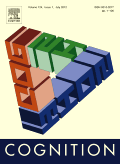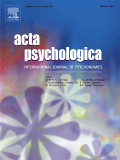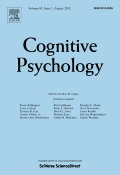
PSYCHOLOGIA
Scope & Guideline
Fostering Scholarly Dialogue in Psychology
Introduction
Aims and Scopes
- Neurocognitive Mechanisms:
Research exploring the neural foundations of cognitive functions, including memory, attention, and executive function using techniques such as fMRI and EEG. - Emotion and Social Cognition:
Investigations into how emotional processing and social interactions influence cognitive functions, particularly in clinical populations or those with neurological conditions. - Language and Communication:
Studies on language processing, bilingualism, and the neural correlates of communication, addressing both typical and atypical development. - Perception and Action:
Exploration of sensory processing, perceptual learning, and the relationship between perception and motor actions in various contexts. - Developmental Psychology:
Research focusing on cognitive development across the lifespan, including studies on children, adolescents, and aging populations. - Clinical Applications:
Application of psychological research to clinical settings, examining interventions, cognitive rehabilitation, and understanding disorders such as ADHD, dyslexia, and aphasia.
Trending and Emerging
- Integration of Technology in Research:
There is a growing trend towards incorporating advanced technologies such as virtual reality, neurofeedback, and machine learning in psychological research, enhancing the ecological validity of findings. - Focus on Neurodevelopmental Disorders:
An increase in studies addressing neurodevelopmental disorders, particularly in understanding cognitive processes and interventions for populations such as children with ADHD and dyslexia. - Multisensory Integration:
Research examining how different sensory modalities interact and contribute to cognitive processes is gaining traction, highlighting the complexity of perceptual and cognitive functions. - Real-World Applications of Cognitive Psychology:
A shift towards research that emphasizes real-world applications of cognitive psychology, such as interventions for mental health, educational strategies, and rehabilitation therapies. - Interpersonal Neural Synchronization:
An emerging area of interest involves studying how neural synchrony between individuals reflects social interactions and influences collective behavior, suggesting a new frontier in social neuroscience.
Declining or Waning
- Traditional Cognitive Assessments:
Research focusing solely on traditional cognitive assessment methods appears to be decreasing, as the journal shifts towards more integrated, multimodal approaches that combine neuroimaging with behavioral assessments. - Basic Neuroscience without Clinical Implications:
There is a noticeable decline in studies that purely explore basic neuroscience without direct clinical implications, reflecting a trend towards applied research that addresses real-world psychological issues. - Static Models of Cognition:
Research utilizing static or purely theoretical models of cognition is becoming less prominent, with a preference for dynamic and interactive models that account for variability in cognitive processes.
Similar Journals

QUARTERLY JOURNAL OF EXPERIMENTAL PSYCHOLOGY
Bridging Theory and Practice in PsychologyQuarterly Journal of Experimental Psychology, published by SAGE Publications Ltd, is a leading peer-reviewed journal that serves as a vital resource in the fields of experimental and cognitive psychology, neuropsychology, and medicine. With an impactful contribution to psychological research, the journal is recognized for its rigorous methodology and empirical studies, holding a notable ranking among its peers—finding itself in the Q2 quartile across several categories. With its origin tracing back to 2006, Quarterly Journal of Experimental Psychology significantly influences the academic discourse until its latest published findings in 2024. Catering to a diverse audience of researchers, professionals, and students, this journal provides Open Access options, enhancing the reach and accessibility of cutting-edge psychological research. By focusing on innovative approaches and findings, it aims to bridge theoretical understanding with practical application, hence fostering advancement in multiple related disciplines. For those committed to understanding the complexities of human behavior and cognitive processes, this journal remains an essential reference point.

Acta Psychologica Sinica
Bridging Research and Practice in Psychological StudiesActa Psychologica Sinica, published by SCIENCE PRESS, is a premier journal in the field of psychology, dedicated to advancing the understanding of psychological science through rigorous research. Located in Beijing, China, this journal covers a broad spectrum of topics within the field, aiming to foster the dissemination of innovative and influential psychological research. With an impact factor that reflects its growing prominence, it is classified in the Q3 quartile for Psychology (miscellaneous) as of 2023, indicating its relevancy and contribution to the discipline. Researchers, professionals, and students alike will find valuable insights within its pages, as it encompasses diverse psychological perspectives and methodologies. Although it operates under a traditional publication model without open-access options, the quality of research featured here makes it a vital resource for those seeking to stay informed on current developments and trends in psychology.

Cognition
Exploring the Depths of Human Thought and LanguageCognition, published by Elsevier, is a leading journal dedicated to the exploration and advancement of knowledge in the multifaceted fields of cognitive neuroscience, cognitive psychology, and linguistics. Since its inception in 1972, this prestigious journal has established itself as a prominent platform for disseminating innovative research and critical reviews, achieving a remarkable Q1 ranking across various relevant categories, including Cognitive Neuroscience and Developmental Psychology, as per the 2023 metrics. With a focus on providing insights that are vital for researchers, professionals, and students alike, Cognition boasts an impressive standing in the academic community, evidenced by its high Scopus rankings which place it in the top percentiles in several disciplines. Researchers interested in the cognitive processes underlying human thought, language, and behavior will find Cognition an invaluable resource that publishes cutting-edge findings and fosters interdisciplinary collaboration. Though it operates under a traditional access model, the breadth and depth of its content ensure it remains integral to advancing cognitive science.

Studies in Psychology-Psikoloji Calismalari Dergisi
Connecting global minds through impactful psychological studies.Studies in Psychology-Psikoloji Calismalari Dergisi is an esteemed open-access journal published by the Department of Psychology, Faculty of Letters, Istanbul University. With its inception as an open-access publication in 2017, the journal aims to enhance the visibility and dissemination of psychological research on a global scale. Committed to advancing the field of psychology, it covers a diverse range of topics including cognitive, clinical, and social psychology, making it a valuable resource for researchers, professionals, and students alike. The journal is characterized by its rigorous peer-review process, ensuring the publication of high-quality and impactful research that contributes to ongoing discussions within the discipline. With an ISSN of 1304-4680 and an E-ISSN of 2602-2982, Studies in Psychology serves as a significant platform for innovative psychological studies originating from Turkey and beyond, fostering collaboration and knowledge exchange among scholars worldwide.

ACTA PSYCHOLOGICA
Fostering collaboration and innovation in psychology.ACTA PSYCHOLOGICA, published by Elsevier, is a leading journal that has served the field of psychology since its inception in 1936. With an impact factor that reflects its authority and significance in the discipline, this journal has become essential for researchers, professionals, and students alike. Open Access since 2021, ACTA PSYCHOLOGICA ensures that groundbreaking psychological research is widely accessible, promoting the dissemination and application of knowledge across various branches of psychology including Developmental and Educational Psychology and Experimental and Cognitive Psychology. The journal is categorized in the Q1 and Q2 quartiles, highlighting its high-quality contributions to the field, supported by robust rankings within Scopus. Located in Amsterdam, Netherlands, this journal remains a vital resource for advancing psychological science and fostering collaborative research worldwide.

CANADIAN JOURNAL OF EXPERIMENTAL PSYCHOLOGY-REVUE CANADIENNE DE PSYCHOLOGIE EXPERIMENTALE
Advancing the Frontiers of Experimental PsychologyCanadian Journal of Experimental Psychology / Revue canadienne de psychologie expérimentale (ISSN 1196-1961, E-ISSN 1878-7290), published by the Canadian Psychological Association, serves as a vital resource in the fields of Experimental and Cognitive Psychology and general psychological research. With a respectable impact factor that places it in the Q3 category for both Experimental Psychology and miscellaneous Medicine (2023), this journal offers a platform for innovative research that furthers our understanding of psychological processes. Spanning years from 1993 to 2024, it connects researchers, professionals, and students to contemporary findings and methodologies, fostering a collaborative environment for the advancement of psychological science. Though it does not currently offer Open Access, the journal's commitment to quality and relevance in psychological research continues to make it an important part of the academic landscape, supporting the dissemination of knowledge within a global community.

PSYCHOLOGICAL RESEARCH-PSYCHOLOGISCHE FORSCHUNG
Fostering collaboration across psychology's diverse realms.Psychological Research – Psychologische Forschung is a renowned interdisciplinary journal published by Springer Heidelberg, operating from Germany. As a key publication in the field of psychology, particularly spanning areas such as experimental and cognitive psychology, developmental and educational psychology, and arts and humanities, this journal has made significant contributions to the advancement of psychological science since its inception in 1974. With an impressive impact reflected through its Q1 and Q2 categorizations across various fields, it occupies a prominent position in Scopus rankings, notably ranked #35 in Experimental and Cognitive Psychology. Researchers, professionals, and students alike benefit from its rich repository of original empirical studies, reviews, and methodological advancements. Whether you're seeking to contribute to your field or stay abreast of the latest developments, Psychological Research provides a crucial platform for disseminating innovative psychological knowledge. With a convergence of research years leading to 2024, the journal continues to evolve, maintaining its relevance and excellence within the academic community.

NEUROPSYCHOLOGY REVIEW
Advancing Understanding in Neuropsychological ScienceNEUROPSYCHOLOGY REVIEW is a prestigious journal published by Springer, dedicated to the exploration of cognitive processes and behavior through neurological and psychological perspectives. With its ISSN 1040-7308 and E-ISSN 1573-6660, this journal holds a distinguished position in Q1 of the Neuropsychology and Physiological Psychology category, ranking at #3 out of 76 with an impressive 96th percentile in Scopus. Since its inception in 1990, it has provided a critical platform for researchers, professionals, and students to disseminate and engage with comprehensive reviews and empirical research, promoting a deeper understanding of the interplay between neural mechanisms and psychological phenomena. Aimed at fostering interdisciplinary collaboration and advancement in the field, NEUROPSYCHOLOGY REVIEW invites contributions that push the boundaries of knowledge and stimulate ongoing debates in neuropsychology, making it an invaluable resource for anyone interested in the latest scientific advancements within this dynamic area.

COGNITIVE PSYCHOLOGY
Charting New Territories in Human CognitionCOGNITIVE PSYCHOLOGY is a premier academic journal published by Academic Press Inc. Elsevier Science, specializing in the dynamic and evolving field of cognitive psychology. With a significant history spanning from 1970 to 2024, this journal has established itself as a critical resource for researchers and professionals alike, boasting a distinguished ranking in the Q1 category across multiple disciplines, including Experimental and Cognitive Psychology, Neuropsychology, and Artificial Intelligence. Its impact factor, reflective of its influence and reputation within the academic community, positions COGNITIVE PSYCHOLOGY as an essential platform for disseminating cutting-edge research and theoretical advancements. Although it is not open access, subscribers gain exclusive insights into the latest findings that drive the field forward. The journal's commitment to fostering innovative research makes it an indispensable tool for those dedicated to understanding the complexities of human cognition.

Eksperimentalnaya Psikhologiya
Exploring the depths of mind and behavior.Eksperimentalnaya Psikhologiya is a prominent open-access journal published by the Moscow State University of Psychology and Education, dedicated to advancing the field of psychology. Since its inception, the journal has offered a platform for the dissemination of innovative research in Experimental and Cognitive Psychology, as well as Neuropsychology and Physiological Psychology. The journal's commitment to open access, initiated in 2015, ensures that valuable research findings are freely available to scholars and practitioners worldwide. Although currently categorized in the Q4 quartile for 2023 within several psychology disciplines, it plays a vital role in promoting a diverse range of psychological studies and fostering interdisciplinary collaboration. With a focus on experimental methodology and cognitive processes, Eksperimentalnaya Psikhologiya provides a valuable resource for researchers, professionals, and students seeking to deepen their understanding of psychological science. The journal invites contributions from across the globe, particularly in the evolving landscapes of experimental techniques and neuropsychological research.